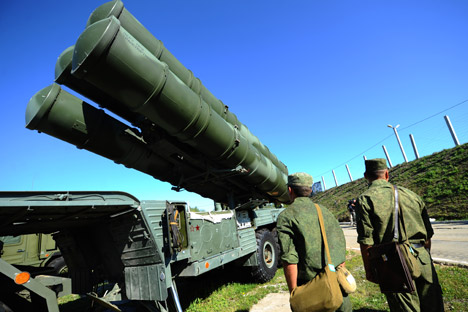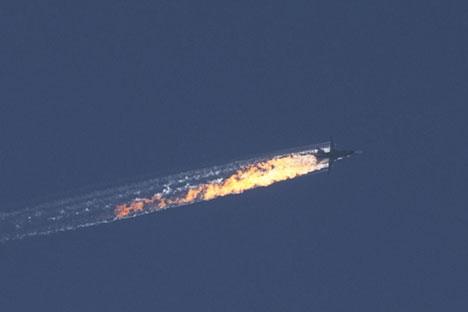"Sending [S-400] is logical. We did not expect to be stabbed in the back. After all, Turkey is part of the anti-ISIL coalition. Earlier, Russia and the US reached an agreement on information sharing," he added.
Russian airstrikes on oil tankers and refineries, according to the expert, touched President Erdogan's "sore spot – his pockets." What Russia did not take into account was how "mean" Turkey is, Anokhin observed.
The Russian Ministry of Defense announced the deployment of the S-400 systems to Syria a day after Turkish warplane shot down a Russian Su-24 fighter jet, which was taking part in Russia's counterterrorism campaign in Syria. Despite Ankara's claims to the contrary, the Russian plane did not violate Turkish airspace.
Anokhin maintains that the downing was a military and political provocation.
"It was an aerial ambush, which means that it was a planned operation. It was authorized," he noted, adding that those behind the downing had several goals in mind.
First, they wanted to scare Russia. Second, they also sought to decrease the intensity of airstrikes on the oil tankers militants use to smuggle oil from the territory they control. Third, they wanted to offer ISIL slight hope that militants would be able to continue to fight, Anokhin said.



